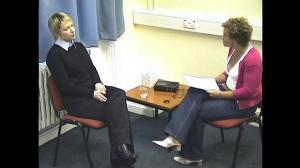Have an idea for a nonfiction book? Will it require interviewing a lot of certain types of people? Interviewing people may not sound that difficult, but there is a real art to conducting them effectively. Rebecca Skloot (pictured), author of The Immortal Life of Henrietta Lacks …
…has some excellent tips.
Use a recording device.
In developing my book, Families of Two, this was essential to collecting interviews with happily married couples who had made the childfree choice. It allowed me to focus on asking questions, and thinking of follow up questions as the discussion went along without having to take a lot of notes.
Having said that, another tip from Skloot is to take copious notes.
Why? You never have too many notes when it comes to gathering information on people and their stories. Does it matter if you take notes digitally say with a laptop or with good ‘ol pad and paper? Answer: use the approach that is the fastest and most unobtrusive.
Ask “throwaway questions.”
These are questions that you already know the answer to in order to take other notes, such as what the person looks like- hair color, dress, things that seem unique about them, their mannerisms, and any other details about the person. It can also be a time to look around you and make notes on that: What is the room like? What is the weather – As Skloot says, “Be specific…you never know what details you’ll end up needing.”
This is not to say as an interviewer you can’t just say “Let me take a moment to write some notes.” Interviewees will understand.
Structure your note taking.
Once way to do this is to separate your note page into two columns – on the left take “content” notes – what the interviewee is actually saying in response to your questions.
On the right side of the page take “S/S” notes, or “style and surrounding” notes. This is where you would jot down details about the interviewee physically, their style, nonverbals when answering a particular question, the interview environment, and anything else that is not related to what the interviewee is actually saying.
Interviewing people as part of developing nonfiction books can be the most enjoyable part of the information gathering process. However, it also requires planning, focus and interpersonal finesse to get all the information you need.
Writers out there, what other tips do you have for conducting research interviews?


